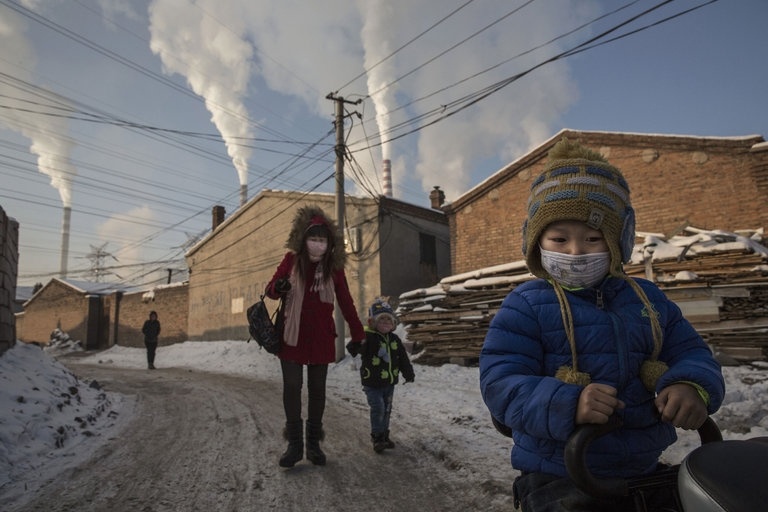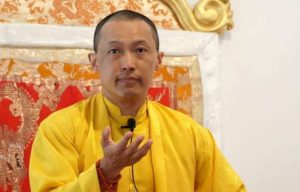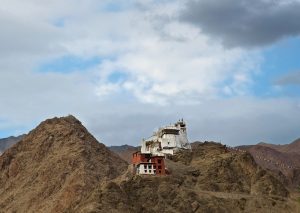
The Earth recently reached a grim milestone. On 24 October, the World Meteorological Organization reported in its annual Greenhouse Gas Bulletin that a strong El Niño weather phenomenon, triggering droughts in tropical regions of the world, had led to a spike in atmospheric levels of carbon dioxide (CO2) above 400 parts per million (ppm) for the first time in recorded history. Scientists estimate that the last time CO2 reached such concentrations was 3–5 million years ago. While human CO2 emissions remained relatively static in 2014–15, scientists point out that they remain a key factor in the overall increase, which was greater in the preceding 12 months than at any time in the past 56 years.
Solutions for mitigating climate change have been proposed in hundreds of thousands of policy documents, think tank reports, and environmental studies. There is no need to repeat them here, although individuals and societies can help in a general sense by conserving and reusing resources, supporting sustainable energy, and reforming habits of production and consumption. However, the diverse needs of different nations, the apparent lack of political will in certain governments, and differing opinions on the development of renewable technology have hampered global progress toward a cleaner, more sustainable future.
Yet it is important to remember that while there might be stagnation in some aspects of the fight against climate change, there is momentum in other areas. For more encouraging news, one could look at how major corporations, such as Cisco Systems and Marks and Spencer, are taking the circular economic model seriously,* or the fact that China and the US both formally ratified the 2015 Paris Agreement on climate change on 3 September. Another mark of progress, perhaps slightly less high profile than the actions of major economies or multinational companies, yet no less influential, comes from the world’s great religions. It is striking that so many faith traditions in the past several years have scrambled to develop philosophical and theological justifications for acting on climate change, meaning that followers of those traditions will hopefully be encouraged to see environmental concerns as a profoundly spiritual matter.

Of course, while there have always been ecological movements under the broader umbrella of the world’s religions, there is a sense of urgency now. Pope Francis has put environmental discourse at the heart of his papacy. Disciples of Plum Village founder Thich Nhat Hanh and readers of his more recent books will be familiar with his repeated invocations to “Mother Earth,” who has assumed as prominent a place in his writing as the Buddha himself. Indeed, many more respected leaders from different traditions—Jewish, Muslim, Sikh, and more—have advocated for strong action on climate change.
Last year, the papal encyclical Laudato si’, as well as Buddhist, Hindu, and Muslim climate change statements signed by a plethora of spiritual leaders were published and circulated within months of each other. There is of course a degree of fear of being “left behind” as religions respond to new challenges, as they have always done in the face of shifting economic, social, and political trends (even as they also shape those trends). In our globalized, interconnected world, it has become much easier to build moral movements and find common ground with those who once seemed a world away, or nurture beliefs different to our own.
The Buddhist statement on climate change is based on a deep humility in the face of the interconnected nexus of the cosmos and organic life, emphasizing: “Our concern is founded on the Buddha’s realization of dependent co-arising, which interconnects all things in the universe. Understanding this interconnected causality and the consequences of our actions is a critical step in reducing our environmental impact.” Buddhism is a non-anthropocentric religion and the theistic religions have also become progressively less so as science expands our knowledge of the cosmos. Human beings are not at the center of any salvation plan or the main protagonists of some divine drama, the only distinct quality about us is that we have been reborn with minds and bodies that are capable of practicing the Dharma and attaining liberation. There is nothing else that makes us different from our non-human brethren, and since Buddhism teaches rebirth, those non-human beings can be reborn as homo sapiens as easily as we can be reborn in non-human form.

Ultimately, to actively respond to climate change is an act of humble recognition that human beings cannot act rapaciously without consequences, that economic growth, though important, is not the final arbiter of a flourishing society, and that humanity is subject to fundamental existential limits. We cannot escape the fundamental fact of life—our inevitable deaths and how our ignorance locks us into the unending cycle of death and rebirth. We are also surrounded by phenomena that remind us just how small we are, such as Mother Nature’s wonders and the endless sea of ancient stars beyond our little blue rock. Yet awareness of our existential limits is not the end of our journey, but the beginning. It is the path not only to saving the planet, but also to insight and Buddhahood.
* The circular economy, in contrast to the mainstream “linear economy” model of “take, make, and dispose,” is a concept that “preserves and enhances natural capital, optimizes resource yields, and minimizes system risks by managing finite stocks and renewable flows.” It distinguishes between technical and biological cycles.
See more
CO2 levels mark ‘new era’ in the world’s changing climate (BBC)
U.S., China ratify Paris climate agreement (Reuters)
What is a circular economy? (EduBirdie.com)
Related news from BDG
Top Buddhists Sign Landmark Statement on Climate Change to Global Leaders (BD)












Thanks you very much for sharing this post.